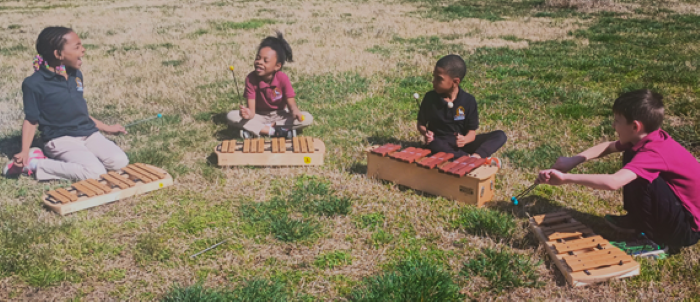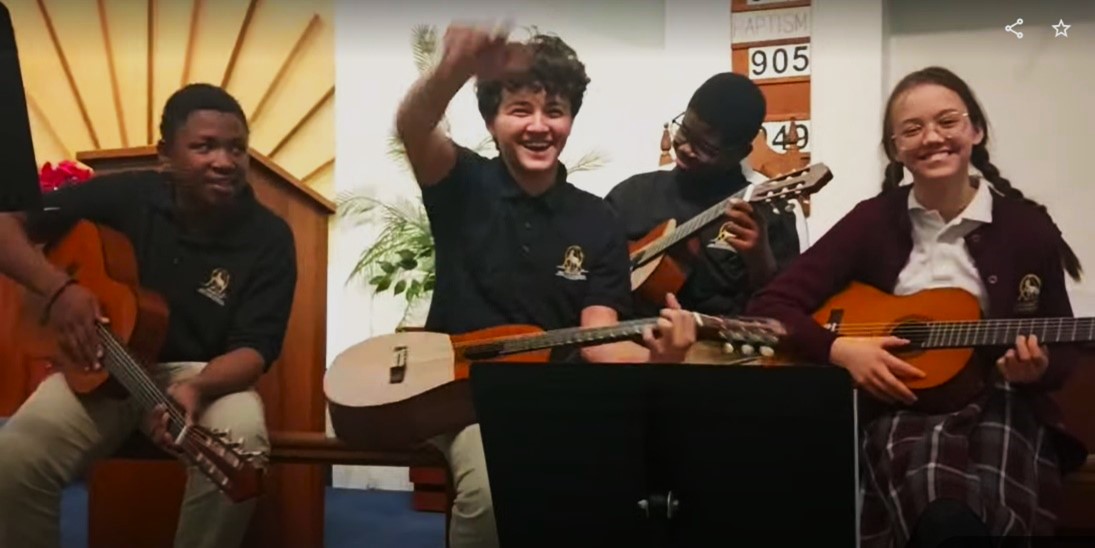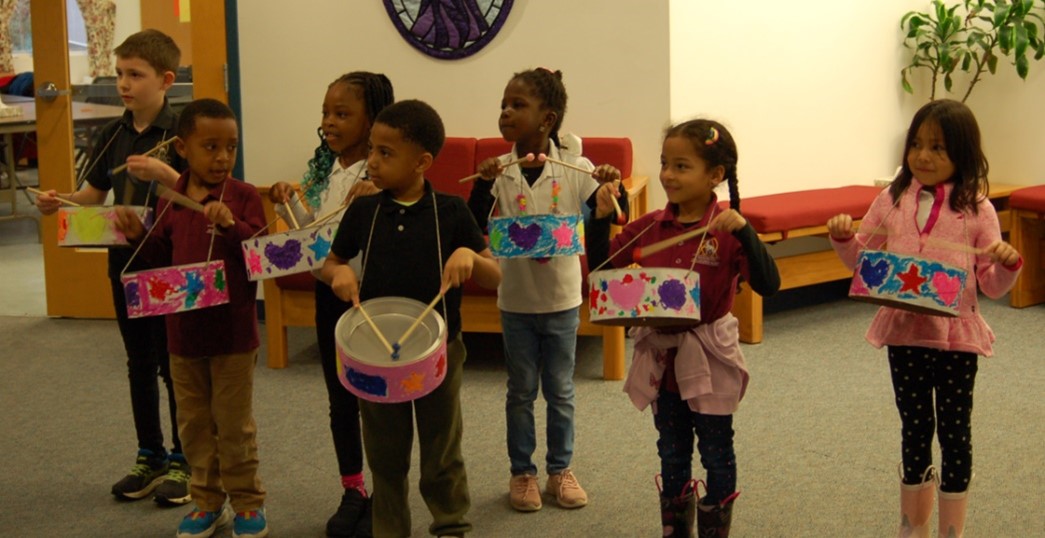Students are reading sheet music by 3rd grade. 8th graders graduate with a solid foundation in music theory that will serve them well in all musical endeavors, amateur or professional!

5th/6th compose music with a specific emotion while studying the Romantic Era


Instruments and Other Topics by Grade:
Pre-K & Kindergarten: expressive movement, reading & creating rhythms, percussion instruments, pitch matching, beginning solfege, worship songs, and many playful games.
1st & 2nd Grade: xylophones, rounds & partner songs, Ghanaian drumming, the orchestra, reading & creating rhythms, solfege, improvisation, and following the conductor.

3rd & 4th Grade: recorders, reading pitches and rhythms, time signatures, composing music to match a mood, Polynesian stick games, and worship & patriotic songs.
5th & 6th Grade: play pianos, tone chimes, European Classical music (Medieval to Modern), musical structures (scales, chords, intervals, solfege, text painting, etc.), piano composition, and choral singing.
7th & 8th Grade: guitars, American music (Appalachian, Shape Note, Blues, Ragtime, Jazz, Rock 'n' Roll, Rap, and Broadway), more musical structures (themes, key signatures, articulations, intervals, solfege), directing music, song composition, and choral singing.

